
SCARS Institute’s Encyclopedia of Scams™ Published Continuously for 25 Years

Trauma-Induced Fear May Cause Paranoia
Psychology of Scams
A SCARS Insight
How Trauma Can Cause Paranoia
Post-traumatic stress disorder (PTSD), and even milder forms of trauma has a variety of symptoms that present differently in each individual who has experienced a traumatic and life-altering event, such as a romance scam or other type of relationship fraud.
Traumatic experiences lead to psychological trauma which can leave one feeling helpless and struggling with upsetting emotions that seem to never go away.
This is the result of an unexpected or repeated overwhelming event such as the emotional abuse and manipulation that comes from a trust relationship gone wrong.
PTSD is often associated with war veterans but they are not the only ones who experience it. Survivors of relationship scams also can exhibit symptoms of PTSD.
Trauma itself is a lot more common than most people realize and the after-effects of trauma can be unbearable or dangerous for some. This is why it’s important to seek out professional trauma counselors or therapists for help. A licensed therapist or counselor can help evaluate a scam victim and develop healthy coping strategies, which might or might not include a victims’ support group.
Without that support, trauma can make a victim increasingly more paranoid resulting in emotionally harming themselves or others while coping with the symptoms. Both trauma and paranoia are treatable mental health conditions.
CAN TRAUMA CAUSE PARANOIA?
Studies have shown that while trauma does increase the likelihood of paranoia, it does not cause paranoia. This means that someone who has experienced trauma in their lifetime has a greater chance of experiencing paranoia in the form of hypervigilance of the mind and body.
But trauma can regularly be triggered that results in a fear response, and this can manifest as paranoia as well!
Paranoia symptoms show up differently in everyone and usually are not as severe, as in a classical diagnosis for paranoia. But, it can be more mentally self-destructive, for instance, when scam victims’ thoughts and perceptions about themselves can be very negative. This paranoia fear response also decreases their ability to accept and receive help.
Research indicates a strong association specifically between trauma and psychosis when it comes to hallucinations. This paranoia can cause extreme anxiety and distress because those hallucinations can be trauma-related triggers. Similar to PTSD flashbacks. It’s important to note that most people who access counseling have not experienced symptoms that are this severe, but again each person is different. If a person is experiencing psychosis, delusions or hallucinations, the best practice would be to contact a psychiatrist immediately.
Trauma can lead some to become more avoidant, distant, or hypervigilant of people and their surroundings. This can turn into distrust of those that are or have been helping or supporting them.
WHAT IS HYPERVIGILANCE?
Individuals who are hypervigilant are constantly anticipating the occurrence of something. Some are more likely to be aware of their surroundings because their trauma led them to question their safety at all times. Others will tend to go into shut down mode, and this can trigger greater anxiety as events and situations surprise them constantly. Anything out of the limited ordinary can trigger a fear or paranoia response.
Hypervigilance isn’t abnormal because it is our body’s way of protecting us from harm. It’s important for people to be aware of their surroundings so that the appropriate survival response can come online should there be a genuine danger. However, for some, the default response to stimulus becomes the flight mode – meaning fear.
While people experiencing trauma have a valid reason to be on alert. It isn’t necessary to be on guard at all times when there is no known or real threat in the present moment. Their level of hypervigilance can disrupt them from recovering from their trauma or leading a better life for themselves.
Examples of trauma-induced hypervigilance include:
- Avoiding spaces where there is too much of a threat – too much activity
- Being easily scared or jumpy at any sudden noise or movement
- Being distrustful of any new situation even from people otherwise trusted
- Believing there is an incoming or imminent threat around the corner
- Arming oneself with weapons to protect them from perceived threats – can be dangerous especially if someone is jumpy and uses a weapon on someone without properly assessing what they believe is a threat
- More secrecy than is called for, and paranoia about discovery
- Loss of sleep and sleep deprivation
- Fatigue, being constantly tired
- Trouble focusing on learning or the logic of things that may affect them – including understanding relatively simple concepts
FINAL THOUGHTS
If YOU begin to avoid public spaces, avoid people, or take extra precautions to ensure your safety, engage in increased secrecy, or more frequent fear responses to normal situations, then your trauma may be increasing.
It’s important for you to seek professional help. This is not the role of a support group and is not a service that SCARS provides. Here is a directory of professional trauma counselors and therapists: https://www.psychologytoday.com/us/therapists/trauma-and-ptsd
You deserve to live a life that is yours without having to be on guard at all times.
-/ 30 /-
What do you think about this?
Please share your thoughts in a comment below!
LEAVE A COMMENT?
Thank you for your comment. You may receive an email to follow up. We never share your data with marketers.
Recent Comments
On Other Articles
- on Finally Tax Relief for American Scam Victims is on the Horizon – 2026: “I just did my taxes for 2025 my tax account said so far for romances scam we cd not take…” Feb 25, 19:50
- on Reporting Scams & Interacting With The Police – A Scam Victim’s Checklist [VIDEO]: “Yes, this is a scam. For your own sanity, just block them completely.” Feb 25, 15:37
- on Danielle Delaunay/Danielle Genevieve – Stolen Identity/Stolen Photos – Impersonation Victim UPDATED 2024: “She goes by the name of Sanrda John now” Feb 25, 10:26
- on Reporting Scams & Interacting With The Police – A Scam Victim’s Checklist [VIDEO]: “So far I have not been scam out of any money because I was aware not to give the money…” Feb 25, 07:46
- on Love Bombing And How Romance Scam Victims Are Forced To Feel: “I was love bombed to the point that I would do just about anything for the scammer(s). I was told…” Feb 11, 14:24
- on Dani Daniels (Kira Lee Orsag): Another Scammer’s Favorite: “You provide a valuable service! I wish more people knew about it!” Feb 10, 15:05
- on Danielle Delaunay/Danielle Genevieve – Stolen Identity/Stolen Photos – Impersonation Victim UPDATED 2024: “We highly recommend that you simply turn away form the scam and scammers, and focus on the development of a…” Feb 4, 19:47
- on The Art Of Deception: The Fundamental Principals Of Successful Deceptions – 2024: “I experienced many of the deceptive tactics that romance scammers use. I was told various stories of hardship and why…” Feb 4, 15:27
- on Danielle Delaunay/Danielle Genevieve – Stolen Identity/Stolen Photos – Impersonation Victim UPDATED 2024: “Yes, I’m in that exact situation also. “Danielle” has seriously scammed me for 3 years now. “She” (he) doesn’t know…” Feb 4, 14:58
- on An Essay on Justice and Money Recovery – 2026: “you are so right I accidentally clicked on online justice I signed an agreement for 12k upfront but cd only…” Feb 3, 08:16
ARTICLE META
Important Information for New Scam Victims
- Please visit www.ScamVictimsSupport.org – a SCARS Website for New Scam Victims & Sextortion Victims
- Enroll in FREE SCARS Scam Survivor’s School now at www.SCARSeducation.org
- Please visit www.ScamPsychology.org – to more fully understand the psychological concepts involved in scams and scam victim recovery
If you are looking for local trauma counselors please visit counseling.AgainstScams.org or join SCARS for our counseling/therapy benefit: membership.AgainstScams.org
If you need to speak with someone now, you can dial 988 or find phone numbers for crisis hotlines all around the world here: www.opencounseling.com/suicide-hotlines
A Note About Labeling!
We often use the term ‘scam victim’ in our articles, but this is a convenience to help those searching for information in search engines like Google. It is just a convenience and has no deeper meaning. If you have come through such an experience, YOU are a Survivor! It was not your fault. You are not alone! Axios!
A Question of Trust
At the SCARS Institute, we invite you to do your own research on the topics we speak about and publish, Our team investigates the subject being discussed, especially when it comes to understanding the scam victims-survivors experience. You can do Google searches but in many cases, you will have to wade through scientific papers and studies. However, remember that biases and perspectives matter and influence the outcome. Regardless, we encourage you to explore these topics as thoroughly as you can for your own awareness.
Statement About Victim Blaming
SCARS Institute articles examine different aspects of the scam victim experience, as well as those who may have been secondary victims. This work focuses on understanding victimization through the science of victimology, including common psychological and behavioral responses. The purpose is to help victims and survivors understand why these crimes occurred, reduce shame and self-blame, strengthen recovery programs and victim opportunities, and lower the risk of future victimization.
At times, these discussions may sound uncomfortable, overwhelming, or may be mistaken for blame. They are not. Scam victims are never blamed. Our goal is to explain the mechanisms of deception and the human responses that scammers exploit, and the processes that occur after the scam ends, so victims can better understand what happened to them and why it felt convincing at the time, and what the path looks like going forward.
Articles that address the psychology, neurology, physiology, and other characteristics of scams and the victim experience recognize that all people share cognitive and emotional traits that can be manipulated under the right conditions. These characteristics are not flaws. They are normal human functions that criminals deliberately exploit. Victims typically have little awareness of these mechanisms while a scam is unfolding and a very limited ability to control them. Awareness often comes only after the harm has occurred.
By explaining these processes, these articles help victims make sense of their experiences, understand common post-scam reactions, and identify ways to protect themselves moving forward. This knowledge supports recovery by replacing confusion and self-blame with clarity, context, and self-compassion.
Additional educational material on these topics is available at ScamPsychology.org – ScamsNOW.com and other SCARS Institute websites.
Psychology Disclaimer:
All articles about psychology and the human brain on this website are for information & education only
The information provided in this article is intended for educational and self-help purposes only and should not be construed as a substitute for professional therapy or counseling.
While any self-help techniques outlined herein may be beneficial for scam victims seeking to recover from their experience and move towards recovery, it is important to consult with a qualified mental health professional before initiating any course of action. Each individual’s experience and needs are unique, and what works for one person may not be suitable for another.
Additionally, any approach may not be appropriate for individuals with certain pre-existing mental health conditions or trauma histories. It is advisable to seek guidance from a licensed therapist or counselor who can provide personalized support, guidance, and treatment tailored to your specific needs.
If you are experiencing significant distress or emotional difficulties related to a scam or other traumatic event, please consult your doctor or mental health provider for appropriate care and support.
Also read our SCARS Institute Statement about Professional Care for Scam Victims – click here to go to our ScamsNOW.com website.


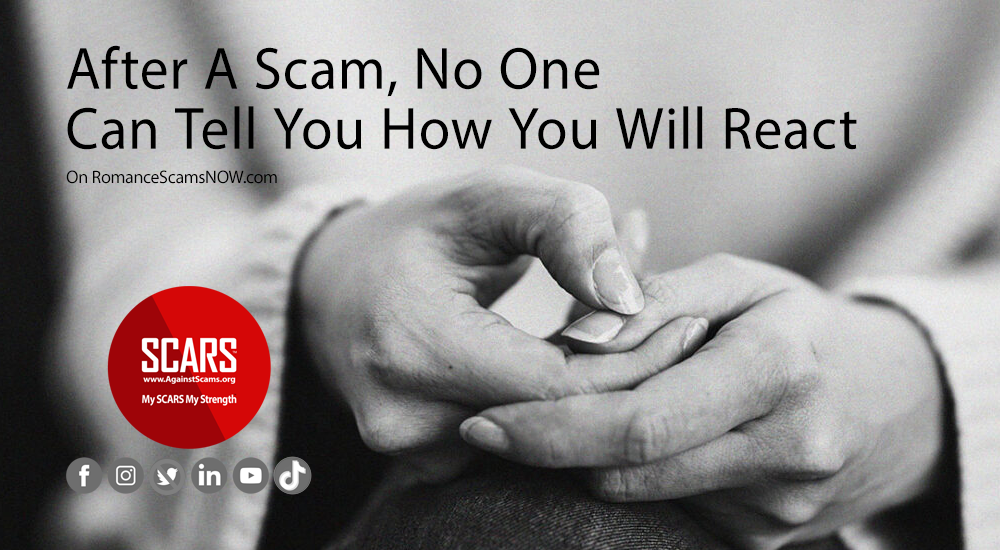
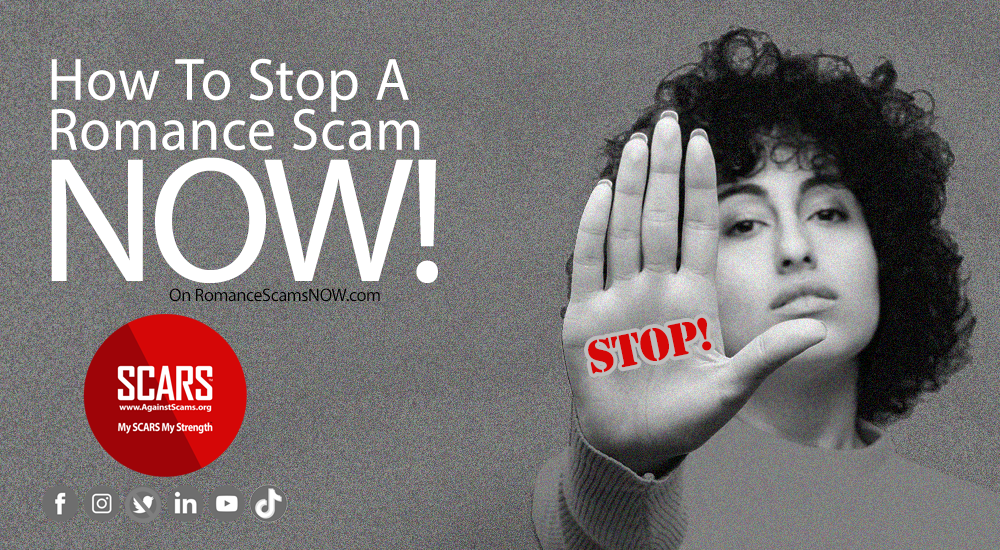
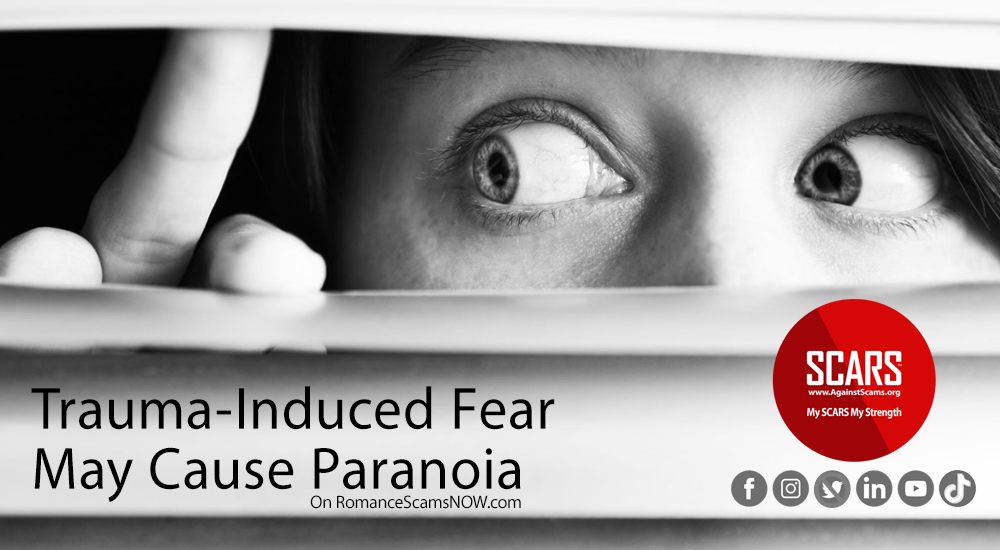

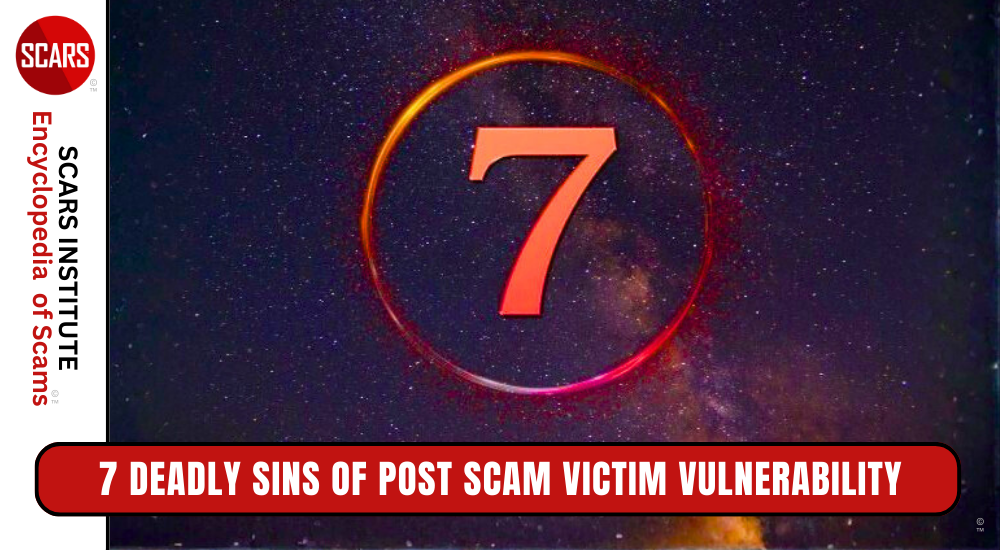

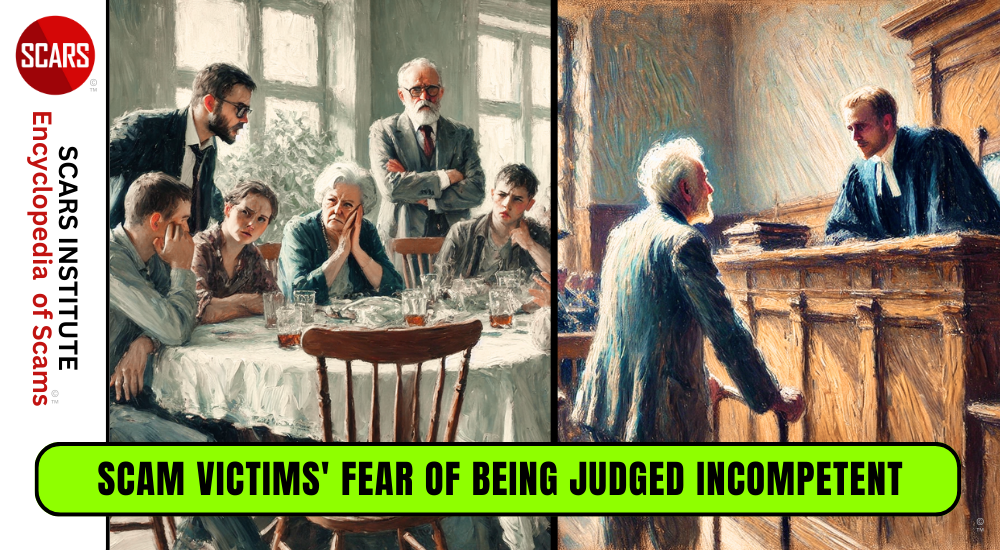

![Financial Recovery - Avoid Money Triggers - Perspective on Money for Scam Victims - 2023 [UPDATED 2025] Financial Recovery Money Triggers Financial Recovery - Avoid Money Triggers - Perspective on Money for Scam Victims - 2023 [UPDAYED 2025] - on the SCARS Institute RomanceScamsNOW.com - the Encyclopedia of Scams™](https://romancescamsnow.com/wp-content/uploads/2025/06/Financial-Recovery-Money-Triggers.png)
![Married Scam Victims: Rebuilding Trust in a Marriage Following a Romance Scam - [UPDATED 2025] Married Scam Victims 2025 Married Scam Victims: Rebuilding Trust in a Marriage Following a Romance Scam - [UPDATED 2025] - on the SCARS Institute RomanceScamsNOW.com - the Encyclopedia of Scams™](https://romancescamsnow.com/wp-content/uploads/2021/04/Married-Scam-Victims-2025.png)




Very good article – informative
After the scam ended, my scammers bombarded me with threats in an attempt to coerce me to comeback. I was hypervigilant, having to deal with my cognitive dissonance as well as incoming threats. It was a stressful period in my life. I am so grateful to have made it through that.
My scam experience left me with experiencing hypervigilance but it does seem to be getting better over time. I think a certain amount of extra vigilance is warranted after being scammed to make sure it doesn’t happen again.